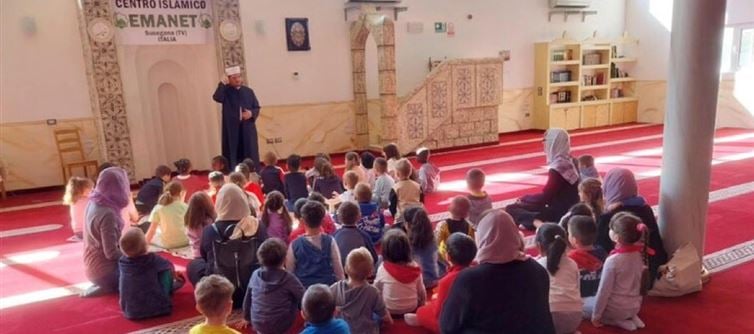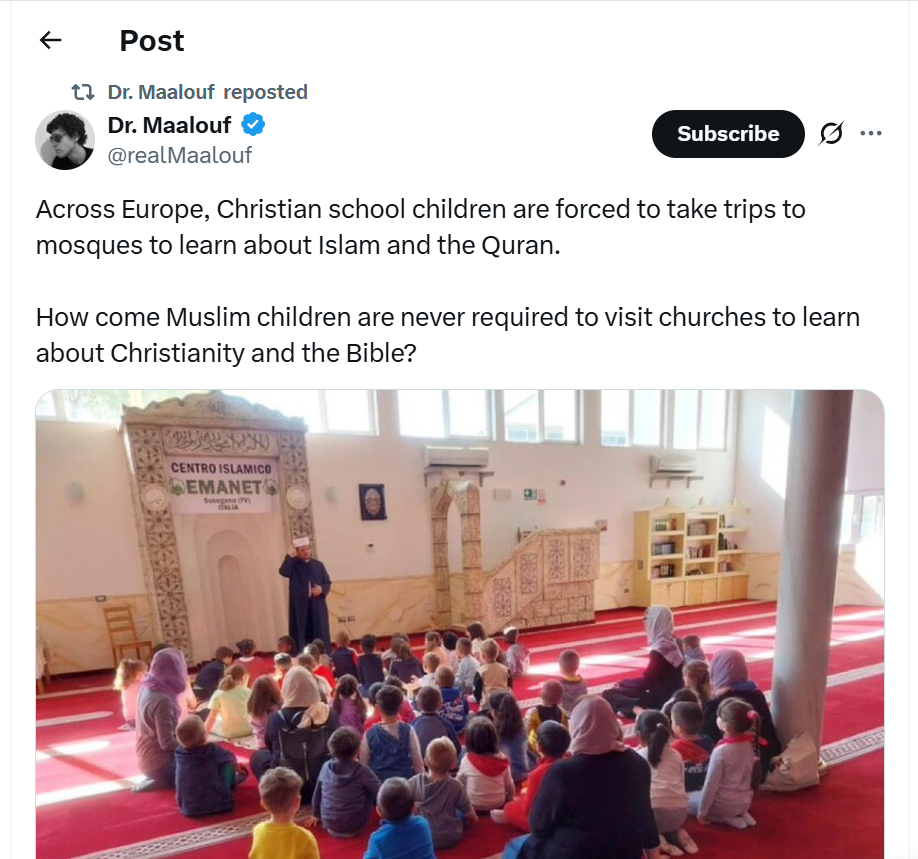
The reason it might appear that Muslim children are not "required" to visit churches is often tied to different cultural and educational contexts. In many cases, Muslim children do visit churches and other places of worship as part of the same curriculum, especially if they attend public or secular schools. However, in faith-based Islamic schools (just like Christian or Jewish schools), the curriculum might focus primarily on their own religion unless national guidelines mandate otherwise. Moreover, the visibility and media attention on mosque visits by Christian students can create a perception of imbalance—even though, in reality, interfaith programs often aim for parity.
 This perception can also stem from the sensitive nature of religious identity and integration in modern Europe. Given historical and political tensions, particularly surrounding immigration and Islamophobia, educational outreach to Islamic communities is sometimes seen as politically charged. Critics may interpret mosque visits as appeasement or favoritism, while supporters argue they help dismantle stereotypes and build inclusive societies. Ultimately, the goal of such programs is to ensure that all students—regardless of faith—understand the pluralistic world they live in. Whether it's the Bible, the Quran, or other scriptures, fostering respectful knowledge of diverse faiths is a cornerstone of modern democratic education.
This perception can also stem from the sensitive nature of religious identity and integration in modern Europe. Given historical and political tensions, particularly surrounding immigration and Islamophobia, educational outreach to Islamic communities is sometimes seen as politically charged. Critics may interpret mosque visits as appeasement or favoritism, while supporters argue they help dismantle stereotypes and build inclusive societies. Ultimately, the goal of such programs is to ensure that all students—regardless of faith—understand the pluralistic world they live in. Whether it's the Bible, the Quran, or other scriptures, fostering respectful knowledge of diverse faiths is a cornerstone of modern democratic education.




 click and follow Indiaherald WhatsApp channel
click and follow Indiaherald WhatsApp channel